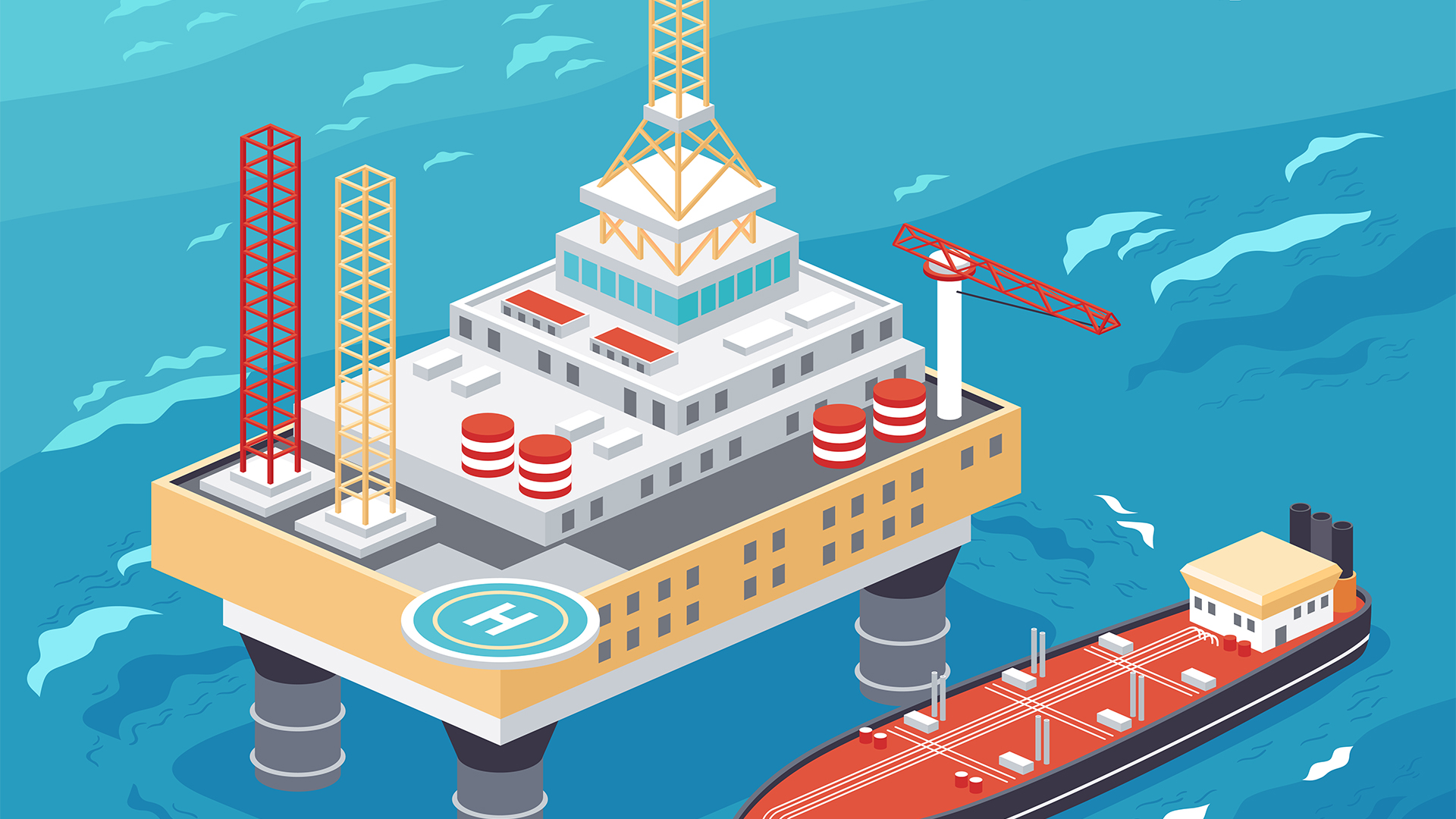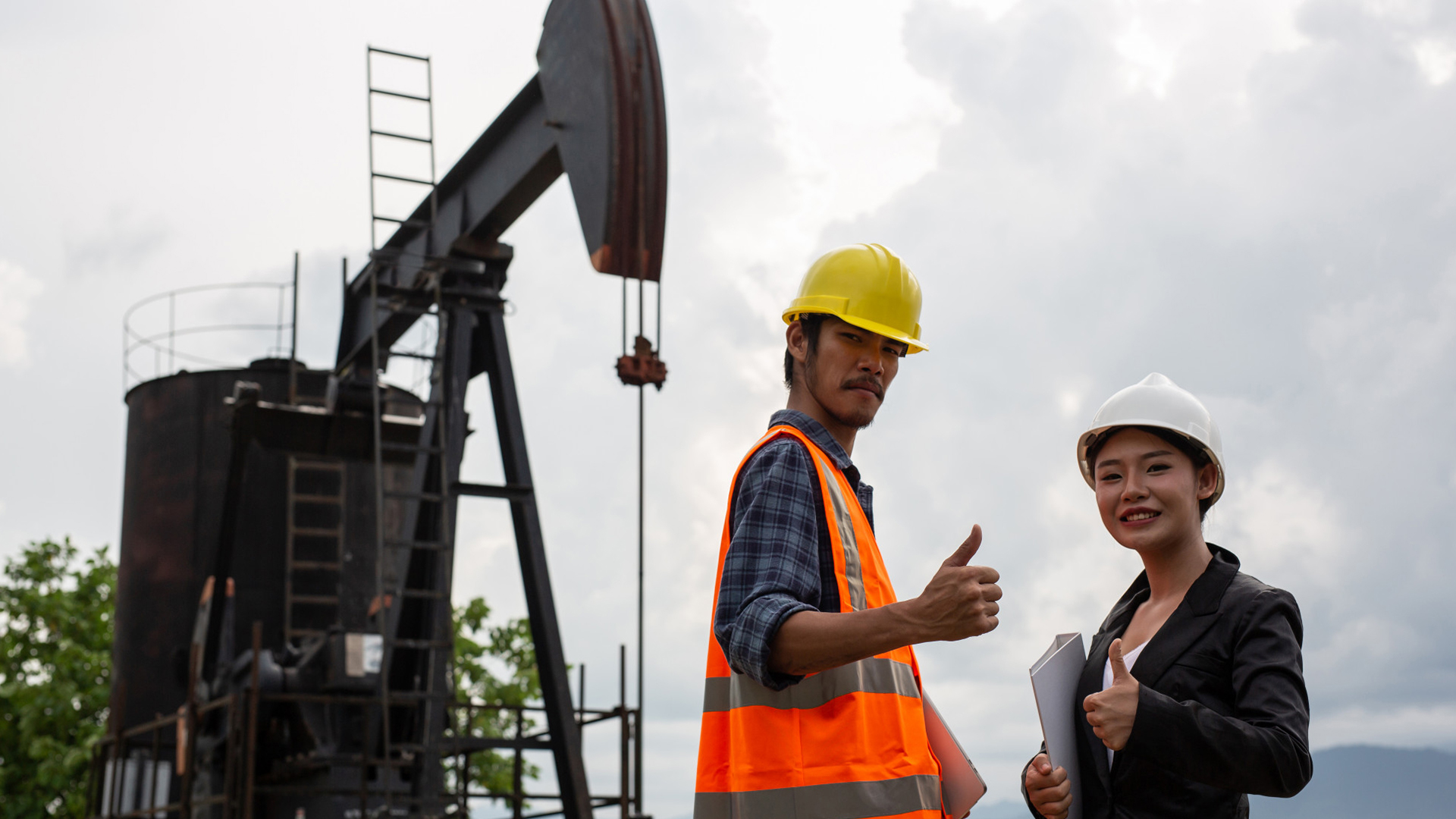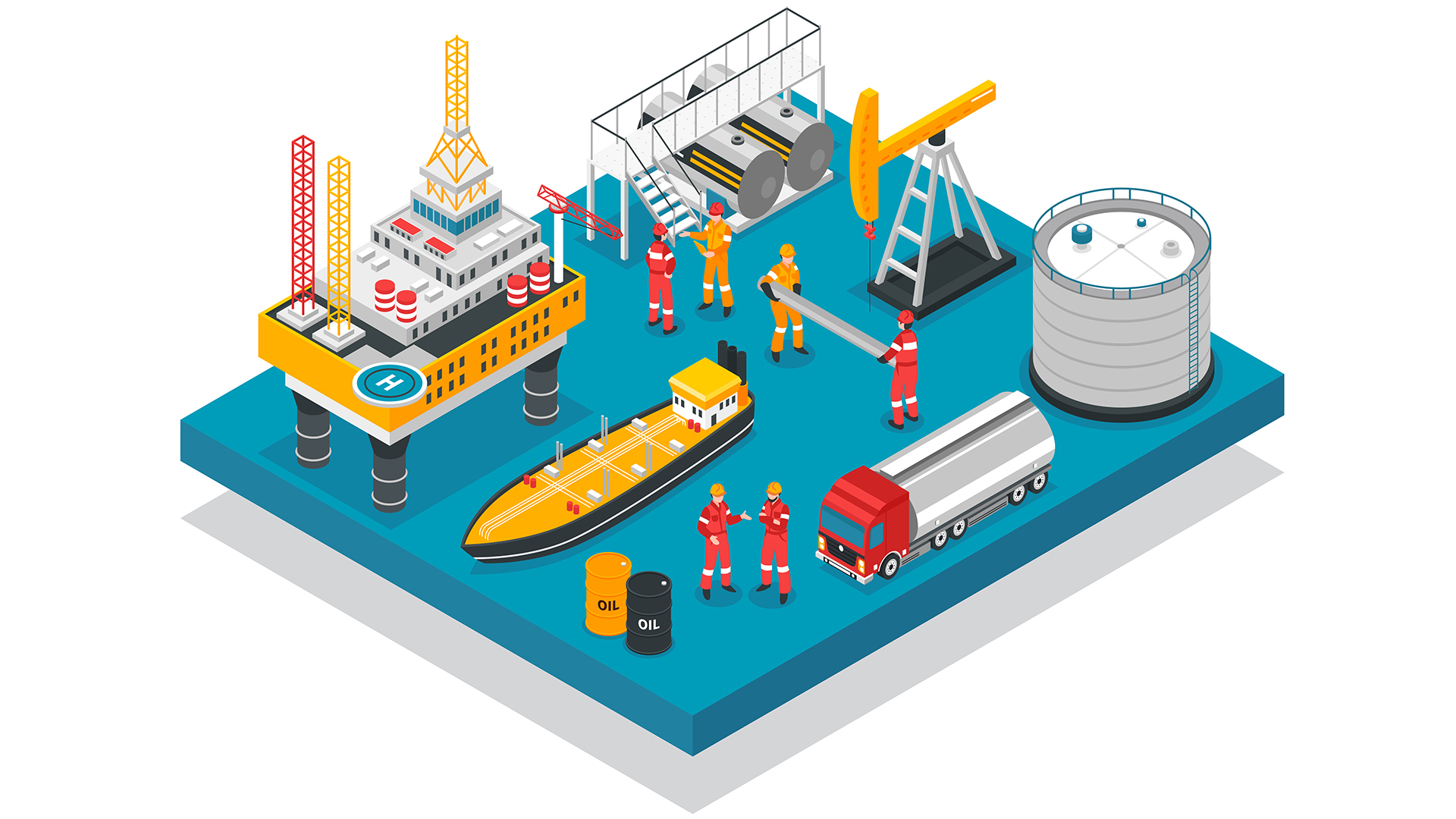
Offshore Oil Rig Training Mastery Series
Course overview
An offshore oil rig: what is it? A massive structure with infrastructure for drilling wells to explore, extract, store, and process petroleum found in rock formations beneath the seabed is known as an offshore oil rig, also known as an offshore platform.
Additionally, a lot of oil platforms contain buildings to house their employees. While certain activities may occur in lakes, inshore waterways, or inland seas, the majority of activities take place in deep waters.
Depending on the structure, goal, and size of the operations, these could be either fixed or floating. Offshore drilling is quite significant, but it also presents a number of environmental issues.
With the knowledge and expertise gained during this Zoe’s Offshore Oil Rig training course, you will be prepared to work on offshore oil rigs or manage all aspects of facility operations.
By enrolling in this training program, you will expand your professional portfolio and acquire all the skills you need, which will ultimately help you land bigger and better career roles and prospects both inside and outside of your company.
Participants will be better equipped to take on positions involving the training of other aspiring and seasoned experts in offshore activities with the knowledge you will acquire from this Offshore Oil Rig Training course.
Introduction
Greetings and welcome to the Offshore Oil Rig Training program. This extensive course is intended to give you the information and abilities you need to succeed in the demanding and ever-changing offshore drilling industry.
A vital component of the global energy economy, offshore drilling is what allows for the recovery of priceless hydrocarbon resources from the ocean floor. The need for offshore drilling to meet the growing global energy demands has become more and more critical. This course has been thoughtfully designed to provide you a thorough grasp of the subtleties and difficulties involved with offshore drilling.
During the course of this program, you will participate in a variety of interactive discussions, case studies, practical exercises, and lectures given by professionals in the field. You’ll get the chance to network with other industry experts and learn from practical projects that have influenced the offshore drilling sector.
After completing the program, you will have a thorough grasp of offshore drilling and be ready to put your newfound knowledge to use in the real world to improve project performance, make wise judgments, and support the ethical and sustainable use of offshore energy resources.
We are The Training Bee, a global training and education firm providing services in many countries. We are specialized in capacity building and talent development solutions for individuals and organizations, with our highly customized programs and training sessions.
Learning Objectives
Upon completing Offshore Oil Rig Training, participants will be able to:
- Total awareness and understanding of every aspect of offshore oil drilling operations.
- The necessary expertise and self-assurance to manage crises and make prompt, informed decisions to stop damage of any type.
- The ability to comprehend and be aware of all operational requirements and benchmarks for quality and safety when drilling offshore.
- The assurance and expertise needed to mentor other professionals who are employed on oil rigs or who want to work there.
- The capacity to apply sophisticated methods and ideas—including technological ones—to simplify, expedite, and improve the accuracy of work.
- The skill and capacity to modify other strategic goals and improve operations for one’s organization in order to gain credibility and draw in investors.
Our Unique Training Methodology
This interactive course comprises the following training methods:
- Journaling – This consists of setting a timer and letting your thoughts flow, unedited and unscripted recording events, ideas, and thoughts over a while, related to the topic.
- Social learning – Information and expertise exchanged amongst peers via computer-based technologies and interactive conversations including Blogging, instant messaging, and forums for debate in groups.
- Project-based learning
- Mind mapping and brainstorming – A session will be carried out between participants to uncover unique ideas, thoughts, and opinions having a quality discussion.
- Interactive sessions – The course will use informative lectures to introduce key concepts and theories related to the topic.
- Presentations – Participants will be presented with multimedia tools such as videos and graphics to enhance learning. These will be delivered engagingly and interactively.
Training Medium
This Offshore Oil Rig Training is designed in a way that it can be delivered face-to-face and virtually.
Course Duration
This training is versatile in its delivery. The training can be delivered as a full-fledged 40-hour training program or a 15- hours crash course covering 5 hours of content each day over 3 days
Pre-course Assessment
Before you enroll in this course all we wanted to know is your exact mindset and your way of thinking.
For that, we have designed this questionnaire attached below.
- What is an offshore oil rig’s main purpose, and how is it different from onshore drilling operations?
- Explain the main parts of an offshore drilling rig and their functions for both production and drilling.
- What are the primary safety factors to be aware of when operating an offshore oil rig, and how are these factors usually handled to reduce risks?
- Describe the drilling procedure on an offshore rig, taking into account the various tools and workers that are used.
- What steps may be taken to reduce the environmental impact of offshore drilling, and how do sustainability issues and environmental regulations relate to each other?
Course Modules
This Offshore Oil Rig Training covers the following topics for understanding the essentials of the Agile Workplace:
Module 1 – Key Components of Production Systems Offshore
- Good platforms
- Submerged feeder pipelines
- Processing environments
- Export conduits
- Tankers for the removal of oil
Module 2 – Different Offshore Oil Rig Types
- Fixed surfaces
- Obliging towers
- Semi-submersible stepping stone
- Jack-up drill apparatuses
- A drillship
- Systems of floating production
Module 3 – Basic Procedures for Offshore Drilling Operations
- Choose a spot and draft a proposal.
- Set up the personnel and area.
- Describe the legal foundations
- Start drilling and preparing the dirt.
- Place the pipe in and check for oil.
Module 4 – Types of Holes in the Initial Stage of Pre-Dig
- Earth pit
- Rathole
- Mousehole
- Pilot hole
Module 5 – Traditional Drilling Techniques
- Fish hook insertion
- Drilling laterally
- inversely drilled
- Fracturing
Module 6 – Offshore drilling’s effects
- Disruption of wildlife habitat
- Oil leaks
- Water and air contamination
- Changes in climate
Module 7 – Occupational Challenges in Offshore Rig Operations
- Dangerous substances
- High temps
- Crowded offices
- Sounds
- Low-quality air
- Rationale
Module 8 – Extra Features of Offshore Oil Rigs for Marine Environment Adaptation
- Heliport
- Living quarters
- Cranes
- Risers
Post-course Assessment
Participants need to complete an assessment post-course completion so our mentors will get to know their understanding of the course. A mentor will also have interrogative conversations with participants and provide valuable feedback.
- Explain the importance of blowout prevention and well control on an offshore rig, as well as how these are handled to guarantee environmental preservation and safety.
- Talk about the duties and responsibilities of the offshore drilling crew, taking into account the average rig’s hierarchy of employment.
- How may financial and economic concerns affect project viability and how can they affect decision-making in offshore drilling operations?
- Describe the significance of obtaining the necessary permits and complying with regulations for offshore drilling, mentioning the common permits needed for such operations.
- Give a brief explanation of the main ideas and practices of the safety and emergency response training that is provided on offshore rigs, as well as how it helps to prevent and lessen accidents.
Lessons Learned
Safety is Not Negotiable: In offshore drilling, safety is of the utmost importance. Strict safety procedures, ongoing education, and a strong safety culture are essential for averting mishaps and safeguarding both people and the environment.
Technical Expertise is Essential: For offshore drilling to be safe and effective, a thorough understanding of the technical aspects of rig operations, well control, and drilling operations is essential.
Environmental Stewardship: Sustainability principles and environmental laws are essential to offshore drilling. Reducing the impact on the environment and guaranteeing adherence are not just prerequisites but also moral obligations.
Well Control is Crucial: Preventing blowouts and maintaining efficient well control are essential to averting disastrous events and safeguarding the integrity of the well and its surroundings.
Regulatory Compliance Matters: It’s critical to understand the complicated world of permits and rules. Offshore drilling requires both stakeholder engagement and compliance with legislative obligations.
Cost management: The success of a project depends on an understanding of the financial aspects of offshore drilling. Project viability is largely dependent on excellent cost management and economical decision-making.
Teamwork: The success of drilling operations is greatly dependent on the offshore drilling crew. For safe and effective drilling, crew members must work together and communicate well.







